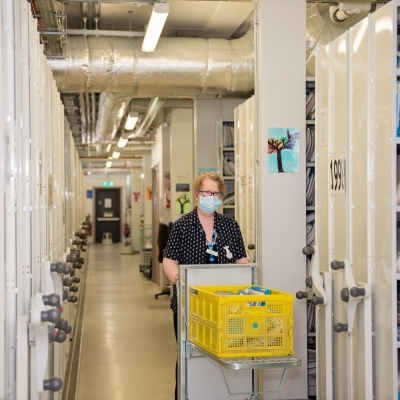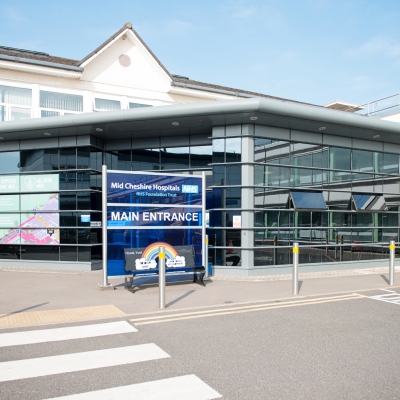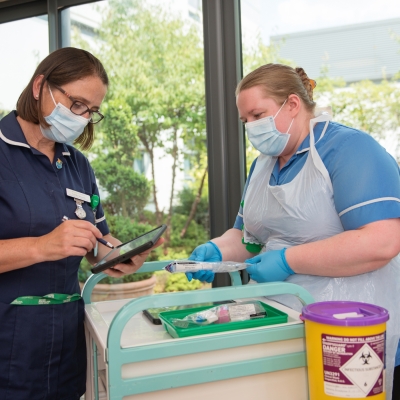Introduction
This statement sets out the steps that Mid Cheshire Hospitals NHS Foundation Trust has taken, and is continuing to take, to ensure that modern slavery or human trafficking is not taking place within our business or supply chain.
About the organisation
Mid Cheshire Hospitals NHS Foundation Trust (MCHFT) provides good quality, safe and effective healthcare to the people of Cheshire and beyond.
The Trust, which manages Leighton Hospital in Crewe, Victoria Infirmary in Northwich, and Elmhurst Intermediate Care Centre in Winsford, was established as an NHS Trust in April 1991 and became a Foundation Trust in April 2008.
It employs just over 5,000 members of staff, has around 540 hospital beds, and provides a range of services including emergency and elective care service, intermediate care and maternity services.
The Trust is also part of Central Cheshire Integrated Care Partnership (CCICP), a local health partnership that provides a range of community health services for people across South Cheshire and Vale Royal.
We are aware of our responsibilities towards patients, service users, employees and the local community and expect all suppliers to the Trust to adhere to the same ethical principles. We are committed to ensuring that there is no modern slavery or human trafficking in our supply chains or in any part of our business. Any identified concerns would be escalated as part of the organisational safeguarding process and in conjunction with partner agencies, such as the Local Authority and Police.
The Trust would recognise an identified concern as actions or behaviours which could be identified as an International Labour Organisation (ILO) Indicators of forced labour. Examples include.
- Abuse of vulnerability
- Deception
- Restriction of movement
- Isolation
- Physical and sexual violence
- Intimidation and threats
- Retention of identity documents
- Withholding of wages
- Debt bondage
- Abusive working and living conditions
- Excessive overtime
We operate a number of internal policies and processes to ensure that we are conducting business in an ethical and transparent manner. These include:
- Recruitment policy – we operate a robust recruitment policy which includes conducting employment checks for all directly employed staff and staff employed on our temporary staffing Bank. This adheres to the national NHS Employment Check Standards which includes Identity and Right to Work checks, suitable references, Disclosure and Barring checks and Occupational Health clearance. Additionally, Trust Executive Directors are assessed against the Fit and Proper Person Regulations to ensure they are compliant prior to taking up their positions. Where agencies are used, these are via the approved frameworks which are audited to provide assurance that pre-employment clearance has been obtained, to safeguard against human trafficking or individuals being forced to work against their will.
- Equal opportunities – we have a range of controls to protect staff from poor treatment and/or exploitation, which complies with all respective laws and regulations. These include fair pay rates and terms and conditions and access to training and development opportunities
- Training – reference is currently made to slavery and modern trafficking within the Trust’s Mandatory Safeguarding programmes. Examples of Modern Slavery are included in Freedom To Speak Up (FTSU) awareness and training content.
- Safeguarding policies – audits are undertaken for safeguarding referrals. In addition, we adhere to the policies in our safeguarding policies and provide clear guidance so that our employees are clear on how to raise safeguarding concerns.
- Whistleblowing policy – we operate a whistleblowing policy so that employees are aware that they can raise concerns without fear of reprisals. Additionally, we give our employees a platform to raise concerns about poor working practices via the Trust Grievance, Complaints and Disputes (staff) incorporating Dignity at Work policy and procedure. We have a Freedom to Speak up Guardian who supports staff to speak up when they feel they are unable to do so through other routes.
- Standards of business conduct – this explains the manner in which we behave as an organisation and how we expect our employees and suppliers to act.
- Contract management – NHS Standard Contract Terms and conditions include specific clauses relating to the Modern Slavery Act and associated Guidance. The Trust, as a provider of healthcare services, is committed to adhering to these for all main acute and community services. When offering sub-contract arrangements for any of these services, these also align to the same conditions.
- Include modern slavery conditions or criteria in specification and tender documents wherever possible
- Evaluate tenders based on modern slavery commitments
- Not award contracts where suppliers do not demonstrate their commitment to ensuring slavery and human trafficking are not taking place in their own business or supply chains
- Expect supply chain/framework providers to demonstrate compliance with their obligations in their processes
- Ensure that employees liaise with the Procurement department when looking to work with new suppliers so appropriate checks can be undertaken
This statement is made pursuant to Section 54(1) of the Modern Slavery Act 2015 and constitutes our organisation's modern slavery and human trafficking statement for the 2024/25 financial year.


